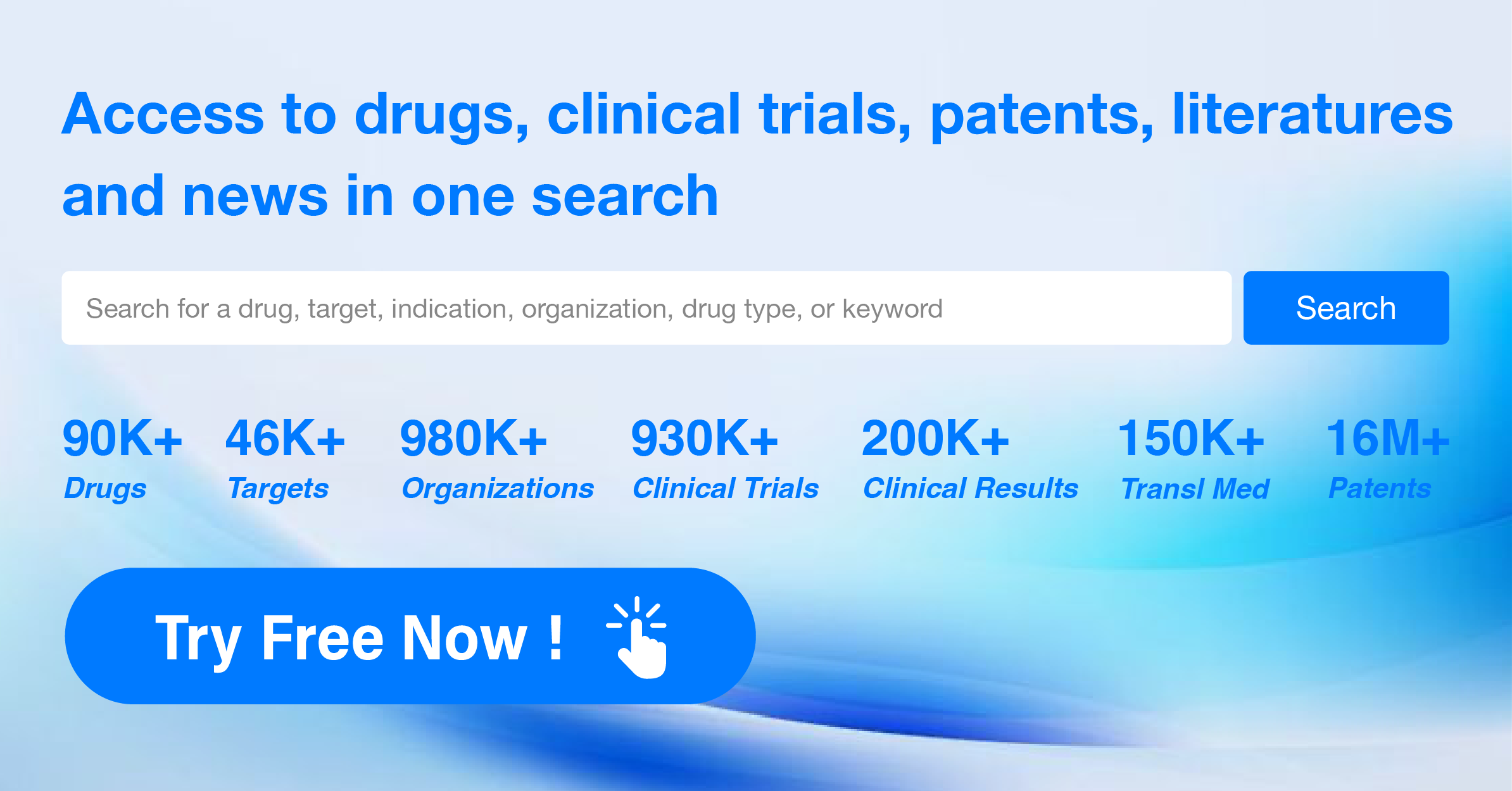Pharma Frontiers: Daily Digest of Global Pharmaceutical News - Jun 19
1.MSD's PD-1 Inhibitor Keytruda Receives FDA Approval for First-Line Treatment of Advanced Cancer
On June 18, the U.S. FDA approved MSD blockbuster PD-1 inhibitor Keytruda (pembrolizumab) in combination with carboplatin and paclitaxel, followed by Keytruda monotherapy, for the treatment of adult patients with primary advanced or recurrent endometrial carcinoma. According to the press release, Keytruda is the first PD-1 targeted therapy approved by the FDA for use with chemotherapy in the treatment of primary advanced or recurrent endometrial carcinoma in adult patients, regardless of microsatellite instability (MSI) status. This approval is primarily based on the positive results from the Phase 3 clinical trial KEYNOTE-868/NRG-GY018. This was a multicenter, randomized, double-blind, placebo-controlled trial enrolling 810 patients with advanced or recurrent endometrial carcinoma. The trial included two independent cohorts based on mismatch repair (MMR) status: 222 patients with mismatch repair deficient (dMMR) and 588 patients with mismatch repair proficient (pMMR). Patients were randomized (1:1) to receive Keytruda in combination with chemotherapy (carboplatin and paclitaxel) followed by Keytruda monotherapy, or placebo in combination with chemotherapy followed by placebo monotherapy. Patients were stratified by MMR status, ECOG performance status (0 or 1 vs 2), and prior adjuvant chemotherapy. The primary efficacy endpoint was progression-free survival (PFS), assessed by the investigator according to RECIST 1.1 criteria. In the dMMR cohort, the median PFS for the Keytruda combination group was not reached (95% CI: 30.7, NR), compared to a median PFS of 6.5 months (95% CI: 6.4, 8.7) for the placebo group, with a significant statistical difference (HR: 0.30, 95% CI: 0.19-0.48; p<0.0001). In the pMMR cohort, the median PFS for the Keytruda combination group was 11.1 months (95% CI: 8.7-13.5), compared to 8.5 months (95% CI: 7.2, 8.8) for the placebo group, with a statistical difference (HR: 0.60, 95% CI: 0.46-0.78; p<0.0001). These results were published in the New England Journal of Medicine in 2023.
2.Zelgen Biopharmaceuticals' Recombinant Human Thyroid Stimulating Hormone Biologic Drug Applied for Market Approval
On June 18, the official website of the Center for Drug Evaluation (CDE) of the National Medical Products Administration (NMPA) of China announced the acceptance of Zelgen Biopharmaceuticals' application for marketing recombinant human thyroid stimulating hormone (rhTSH) for injection. According to publicly available information from Zelgen Biopharmaceuticals, the indication for this market approval is for Whole-Body Scanning (WBS) with radioactive iodine (131I) and serum thyroglobulin (Tg) testing during follow-up in patients with differentiated thyroid cancer who have previously undergone thyroidectomy. Recombinant human thyroid stimulating hormone for injection (rhTSH) is a biologic drug developed by Zelgen Biopharmaceuticals. Endogenous human thyroid stimulating hormone is a member of the glycoprotein hormone family, primarily expressed in the human pituitary gland, secreted into the bloodstream, and binds to the hTSHR protein expressed on the surface of thyroid cells and highly differentiated thyroid cancer cells. This binding can stimulate iodine uptake and organification, as well as the synthesis and release of thyroglobulin (Tg), triiodothyronine (T3), and thyroxine (T4). According to a press release from Zelgen Biopharmaceuticals, the rhTSH developed by the company is identical in amino acid sequence to human natural TSH. The effect of rhTSH activation of thyroid cells is to increase the uptake of radioactive iodine, allowing for scanning detection or radioactive iodine-mediated destruction of thyroid cancer cells. RhTSH activation can also lead to the release of thyroglobulin from thyroid cells, with thyroglobulin serving as a tumor marker for thyroid cancer in blood samples. In an open-label, single-arm, self-controlled, multicenter Phase 3 clinical study designated as ZGTSH004, researchers evaluated the efficacy and safety of recombinant human thyroid stimulating hormone compared to withdrawal of thyroid hormone therapy for post-operative adjuvant diagnosis in patients with differentiated thyroid cancer. In September 2023, the study reached its pre-specified primary endpoint. The clinical study results indicated that the efficacy and safety outcomes of the ZGTSH004 trial met expectations.
3.Johnson & Johnson Submits Regulatory Application to FDA for Bispecific Antibody Rybrevant as First-Line Treatment for Lung Cancer
On June 18, Johnson & Johnson announced that it has submitted a Biologics License Application (BLA) to the U.S. FDA, seeking approval for a fixed-dose subcutaneous combination of the bispecific antibody Rybrevant (amivantamab) with recombinant human hyaluronidase. This application aims to extend the indication for all currently approved or submitted intravenous formulations of Rybrevant for the treatment of certain non-small cell lung cancer (NSCLC) patients. According to the press release, patients can complete the subcutaneous injection in 5 minutes. The BLA submission is primarily based on results from the PALOMA-3 study. Data showed that the subcutaneous formulation of Rybrevant has a comparable overall response rate to the intravenous formulation in NSCLC patients with EGFR exon 19 deletion or L858R mutation. The subcutaneous formulation of Rybrevant also demonstrated significantly shortened administration time and a fivefold reduction in infusion-related reactions, along with longer overall survival, progression-free survival, and duration of response. According to the press release, such efficacy results have not been seen in prior studies evaluating intravenous and subcutaneous formulations. Detailed trial results were published in this month’s Journal of Clinical Oncology. Additionally, the BLA submission includes data from the Phase 2 PALOMA-2 study, which supports bi-weekly and tri-weekly dosing schedules. Rybrevant is a humanized EGFR/MET bispecific antibody. It has multiple anti-cancer mechanisms of action, not only blocking EGFR and MET-mediated signaling but also directing immune cells to target tumors carrying activating and resistant EGFR/MET mutations and amplifications. Rybrevant received accelerated approval from the FDA in May 2021 and full approval this March for the treatment of adult patients with locally advanced or metastatic NSCLC with EGFR exon 20 insertion mutations, whose disease has progressed on or after platinum-based chemotherapy.
4.Kangzhe Pharmaceutical's newly introduced drug, Methylene Blue Delayed-Release Tablets, has been approved for market release in China, targeting colorectal cancer.
On June 18, the National Medical Products Administration (NMPA) of China's official website announced that the marketing application for the 5.1-class new drug, Methylene Blue Delayed-Release Tablets, jointly submitted by Alfasigma, Cosmo, and Kangzhe Pharmaceutical, has been approved. According to a previous press release from Kangzhe Pharmaceutical, Methylene Blue Delayed-Release Tablets is an oral diagnostic agent designed to enhance the visualization of colorectal lesions in adult patients undergoing colonoscopy for screening or surveillance, significantly increasing the detection rate of non-polypoid colorectal lesions.
Colorectal cancer is one of the most common malignant tumors of the digestive system worldwide, characterized by high incidence and mortality rates as well as poor treatment outcomes. Early diagnosis and removal of adenomas and other precancerous lesions before the spread and progression of colorectal cancer can substantially improve survival rates. Colonoscopy remains a crucial technique and is considered the "gold standard" for colorectal cancer screening.
Public data show that Methylene Blue Delayed-Release Tablets is an oral diagnostic agent, a novel formulation of the currently available liquid colon dye, methylene blue, developed using Cosmo's innovative technology. This product is used in combination with routine colonoscopy to detect lesions. When taken orally, the tablet releases the dye in a delayed and controlled manner, evenly distributing it throughout the colon. It has been clinically validated to improve the detection of all types of lesions during endoscopic examinations, including precancerous lesions such as adenomas. An increased adenoma detection rate is inversely related to the risks of developing colorectal cancer and associated mortality, thus underscoring its significant clinical relevance.Methylene Blue Delayed-Release Tablets were approved for market release by the European Medicines Agency (EMA) in 2020 and are commercially known as Lumeblue.
5.AstraZeneca's First-in-Class AKT Inhibitor Fails in Phase III Clinical Trial for First-Line Treatment of Triple-Negative Breast Cancer
On June 18, AstraZeneca announced that its AKT inhibitor capivasertib, in combination with paclitaxel, failed to meet the dual primary endpoints of overall survival (OS) in the CAPItello-290 Phase III trial for patients with locally advanced (inoperable) or metastatic triple-negative breast cancer (TNBC). The trial did not achieve the OS endpoint either in the overall study population or in the subgroup of patients whose tumors carried specific biomarker alterations (PIK3CA, AKT1, or PTEN). Capivasertib is a first-in-class, highly selective inhibitor of AKT1/2/3. Activation of the AKT signaling pathway, including alterations in PIK3CA, AKT1, and PTEN, can occur in many patients with advanced HR+/HER2- breast cancer, but they can also be present in patients without these genetic changes. In November 2023, capivasertib was approved by the FDA for the treatment of hormone receptor-positive (HR+), human epidermal growth factor receptor 2-negative (HER2-) locally advanced or metastatic breast cancer in patients whose disease had relapsed or progressed on or after endocrine-based therapy. Breast cancer is the second most common cancer globally and one of the leading causes of cancer-related deaths. Some breast cancers may test positive for overexpression of estrogen receptor (ER), progesterone receptor (PR), or human epidermal growth factor receptor 2 (HER2), whereas TNBC is defined as being negative for all three receptors. The average OS for patients with advanced or metastatic TNBC is 12 to 18 months, with only about 14% of patients surviving five years post-diagnosis. Approximately 59,000 TNBC patients undergo drug treatment in the first-line setting. Overall, mutations in PIK3CA and AKT1, along with alterations in PTEN, affect about 35% of TNBC patients. The CAPItello-290 global trial enrolled 923 adult patients with histologically confirmed locally advanced or metastatic TNBC. The trial had two primary endpoints: OS in the overall patient population and OS in patients with qualifying alterations in the PI3K/AKT pathway (PIK3CA, AKT1, or PTEN genes).
6.Takeda's first-in-class CH24H Inhibitor Misses Two Phase III Primary Endpoints
On June 17, Takeda and Ovid Therapeutics jointly announced preliminary data from two Phase III studies, SKYLINE and SKYWAY, evaluating soticlestat (TAK-935) for the treatment of epilepsy. Soticlestat is a potential first-in-class CH24H inhibitor. CH24H is an enzyme primarily expressed in the brain that breaks down cholesterol into 24S-hydroxycholesterol (24HC), thereby reducing glutamatergic hyperexcitability. The SKYLINE study aimed to evaluate the efficacy of soticlestat plus standard treatment compared to placebo plus standard treatment in patients with Dravet syndrome. Compared to placebo, soticlestat missed the primary endpoint of convulsive seizure frequency (p=0.06). For all six key secondary endpoints, soticlestat demonstrated clinically meaningful and nominally significant results (all P values ≤0.008). In another study, the SKYWAY trial, which targets patients with refractory Lennox-Gastaut syndrome, the drug did not reduce the frequency of myoclonic-atonic (MMD) seizures compared to placebo. Soticlestat was generally well-tolerated in both the SKYLINE and SKYWAY studies, with a safety profile consistent with previous results. Dravet syndrome (DS) and Lennox-Gastaut syndrome (LGS) are categorized as developmental and epileptic encephalopathies (DEE), which are rare epilepsy syndromes typically evident in infancy or early childhood and highly resistant to many anticonvulsant medications. In the Phase II ELEKTRA study, soticlestat, compared to placebo, significantly reduced seizure frequency from baseline over the entire treatment period in a combined DS and LGS study population (p=0.002). In the DS cohort, soticlestat also significantly reduced seizure frequency from baseline compared to the placebo group (p=0.0007). Takeda will discuss the full dataset derived from these studies with regulatory authorities to determine the next steps.
7.Kira Pharmaceuticals Reports Long-term Data on Innovative Drug; Primary Metrics Increase in 100% of Patients!
On June 18, Kira Pharmaceuticals announced that it will present the long-term safety and efficacy results of its Phase 2 clinical trial of KP104 for the treatment of Paroxysmal Nocturnal Hemoglobinuria (PNH) in an oral presentation at the 2024 European Hematology Association (EHA) Congress. KP104 is an investigational bispecific C5 antibody/Factor H fusion protein. PNH is a rare and life-threatening blood disorder caused by the overactivation of the complement system, which is part of the innate immune system. It is characterized by the destruction of red blood cells, thrombosis, and impaired bone marrow function. Due to the complexity of complement biology and multiple pathogenic pathways in PNH, there remains a significant unmet clinical need for next-generation therapies that offer better efficacy and dosing convenience than current treatments.
Presently, existing therapies fail to address extravascular hemolysis (EVH) associated with the alternative pathway or sufficiently block downstream C5, resulting in life-threatening breakthrough hemolysis. KP104 is a bispecific complement biological drug with a unique mechanism of action designed to selectively inhibit both the complement alternative pathway (via Factor H) and the terminal pathway (via C5), thereby providing a synergistic and potentially more selective means of precisely treating complement-mediated diseases. KP104 is also engineered to have an extended half-life and enhanced potency, with formulations suitable for intravenous and subcutaneous administration.
The oral presentation at the EHA Congress will cover the long-term results of a Phase 2 clinical study involving PNH patients who had not received complement inhibitors. Key study findings include treatment outcomes for 18 patients over a period of up to 65 weeks, as well as results for all patients who transitioned from three dose-escalation cohorts (each cohort n=6) to the Optimal Biologic Dose (OBD) and continued treatment for an additional 24-26 weeks.
8.Johnson & Johnson's Potential Blockbuster Therapy Achieves Primary Endpoint in Phase 2 Clinical Trial, Can Treat Multiple Autoimmune Diseases
Recently, Johnson & Johnson announced that its investigational antibody therapy, nipocalimab, which targets the neonatal Fc receptor (FcRn), achieved the primary endpoint in the Phase 2 DAHLIAS clinical trial for adult patients with Sjögren’s disease (SjD). Patients treated with nipocalimab showed a statistically significant (P=0.002) and clinically meaningful improvement in their ClinESSDAI scores compared to baseline at week 24. Similar efficacy was also observed compared to the placebo group. The press release noted that these data represent the first positive clinical trial results for nipocalimab in the treatment of SjD. Earlier this year, industry media outlet Evaluate named this therapy as one of the top 10 potential blockbuster therapies in development.
Nipocalimab is a potential "best-in-class" antibody therapy targeting FcRn. By binding to FcRn, it prevents the re-release of autoantibodies that are taken up by monocytes and endothelial cells, leading to their degradation within the cells. Previous studies have shown that it can reduce IgG levels circulating in the blood, including pathogenic autoantibodies, by more than 75%. This antibody therapy holds promise for treating a variety of antibody-mediated autoimmune diseases.
Previously, nipocalimab received Breakthrough Therapy Designation from the FDA for the treatment of pregnant women at high risk for severe hemolytic disease of the fetus and newborn (HDFN). Nipocalimab has also achieved positive topline results in the pivotal Phase 3 VIVACITY clinical trial for the treatment of adult patients with generalized myasthenia gravis (gMG). In this Phase 2 clinical trial, patients in the nipocalimab treatment group began to experience relief starting at week 4, with continuous improvement throughout the entire 24-week treatment period.
The primary endpoint, ClinESSDAI, is a comprehensive scale specifically designed for SjD, assessing disease activity across 11 organ system domains, including the skin, lungs, kidneys, joints, muscles, peripheral nervous system (PNS), central nervous system (CNS), blood, glands, lymphadenopathy, and lymphoma components. Higher scores indicate more severe symptoms.
9. MSD Acquires a Small Molecule New Drug, Bomedemstat, Now Approved for Clinical Trials in China
On June 17, the official website of the Center for Drug Evaluation (CDE) of the National Medical Products Administration of China announced that the Type 1 new drug, Bomedemstat capsules, submitted by MSD, has been approved for clinical trials. The drug is intended to be developed for the treatment of primary thrombocythemia. According to publicly available information, Bomedemstat (MK-3543) is an oral lysine-specific demethylase 1 (LSD1) inhibitor. In November 2022, MSD acquired Imago BioSciences for approximately $1.35 billion in cash, consequently obtaining this key phase 2 clinical candidate drug. The product is currently in phase 3 clinical trials internationally. LSD1 is an epigenetic regulatory protein that modulates the maturation of bone marrow stem cells and is crucial for the self-renewal of hematopoietic stem cells and the maturation of progenitor cells. MSD has already initiated the pivotal phase 3 randomized clinical trial MK-3543-006 to evaluate the efficacy of this product in treating patients with primary ET. Previously, at the 2023 American Society of Hematology (ASH) Annual Meeting, MSD presented the latest data from the phase 2b MK-3543-003 trial. This study aims to assess the efficacy and safety of Bomedemstat, either alone or in combination with the JAK inhibitor Ruxolitinib, in treating myeloproliferative neoplasms (MPN). As of the data cut-off on June 30, 2023, the study included 16 male and 16 female patients with a median age of 64 years. The median duration of treatment with Ruxolitinib+Bomedemstat was 12 weeks. Among the 20 evaluable patients at week 12, 12 (60%) achieved stability or improvement in hemoglobin (Hb), 5 (25%) had a reduction in Total Symptom Score (TSS) for bone marrow fibrosis symptoms by ≥50%, and 18 (65%) experienced a ≥30% reduction in spleen length. Molecular response was assessed in 6 patients at week 12 using droplet digital polymerase chain reaction, with 4 patients (67%) showing a reduction in JAK2 V617F allele frequency, and one patient (17%) showing a reduction of ≥50%.
How to obtain the latest research advancements in the field of biopharmaceuticals?
In the Synapse database, you can keep abreast of the latest research and development advances in drugs, targets, indications, organizations, etc., anywhere and anytime, on a daily or weekly basis. Click on the image below to embark on a brand new journey of drug discovery!




